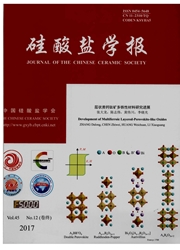

 中文摘要:
中文摘要:
硅酸盐水泥中硫酸盐通常以碱金属硫酸盐、硫硅酸钙、硫铝酸钙、硬石膏、二水石膏等形式存在。不同类型硫酸盐在水泥中的含量分布与溶解特性以及对混凝土性能的影响有明显差异。碱金属硫酸盐是熟料中的主要硫酸盐,以硫酸钾、硫酸钠、硫酸钠钾和钾钙复盐形式存在,在参与水泥水化时快速溶出对混凝土早期性能,包括凝结时间、水泥与减水剂相容性、早期强度等有着重要影响,其中硫酸钠和硫酸钠钾复盐的不利影响更为显著。熟料中可能含有少量硬石膏,用作混合材的固硫灰渣和粉煤灰等废渣含有较高含量的硬石膏,在水泥和混凝土中作用与二水石膏相近,但含量过高时应关注其对混凝土性能可能的不利影响。贝利特含有少量硫酸盐,随着贝利特的后期缓慢水化,释放出的硫酸盐可能有利于混凝土的后期强度发展以及体积稳定性,但在早期高温养护条件下,且贝利特含量较高时,贝利特含有的硫酸盐也有可能引起后期混凝土延迟钙矾石生成甚至膨胀开裂破坏。其他类型硫酸盐包括硫铝酸钙、硫硅酸钙和钾石膏在硅酸盐水泥中的含量分布以及对混凝土性能的影响还有待更进一步的认识。
 英文摘要:
英文摘要:
Sulfate can occur in Portland cement as alkali sulfates, anhydrite, a substituent in silicates and aluminates, added gypsum etc. The content and dissolution property of sulfate phases and their impacts on the concrete properties were discussed. Alkali sulfates present as arcanite, thenardite, aphthitalite and langbeinite, and with a quick release, have a great influence on the early properties of concrete, i.e., the setting, the early strength development and the compatibility with superplasticizers. Thenardite and aphthitalite would cause greater strength loss and drying shrinkage than arcanite and langbeinite. Anhydrite rarely exists in clinker, but its amount would highly increase when using fly ash and fluidized bed combustion ash in cement. The increased content of anhydrite with slower dissolution rate and higher dissolution degree compared to gypsum may cause an adverse impact on the concrete properties. Sulfate in belite presents in a trace amount in cement, but it may release at later ages and favor the later strength development and volume stability of concrete. It is assumed that in belite-rich cement, sulfate in belite could pose a risk of causing ettringite formation-induced expansion at an elevated temperature. Besides, the content and impact of other sulfates, i.e., syngenite, sulfates in silicates and aluminates, on concrete properties need further investigation.
 同期刊论文项目
同期刊论文项目
 同项目期刊论文
同项目期刊论文
 期刊信息
期刊信息
